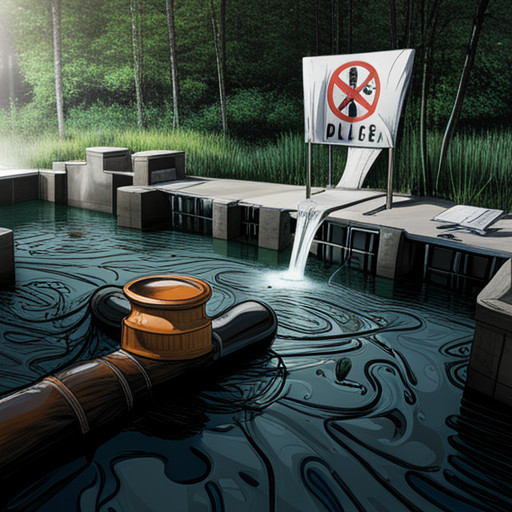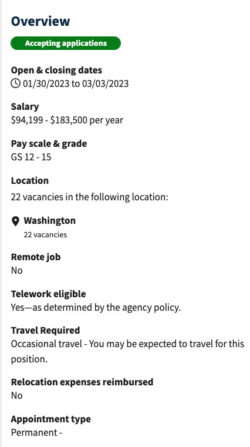Health Risks and Lawsuits Camp Lejeune Water Contamination Hazards
What are the health implications of water contamination at Camp Lejeune, a U.S. military base?

This article examines the alleged link between toxic water exposure and life-threatening conditions in veterans and their families, the ensuing legal battles, and the role of law firms in navigating these complex claims.
The investigation highlights the urgent need for improved health protection measures in military environments, underscoring the long-term impact of environmental neglect.
Key Takeaways
- Drinking contaminated Camp Lejeune water has been linked to kidney failure and other life-threatening conditions such as Parkinson's disease.
- Symptoms of kidney damage include nausea, vomiting, loss of appetite, fatigue, and weakness.
- Lawsuits indicate that the US Navy, Marines, and the Department of Defense were negligent in protecting people's health from the water contamination.
- The water supply at Camp Lejeune was contaminated by hazardous waste dumps and industrial cleaning solvents containing volatile organic compounds (VOCs) like trichloroethylene and benzene.
Understanding the Severity of Camp Lejeune Water Contamination

The severity of Camp Lejeune water contamination is underscored by its association with life-threatening conditions such as kidney failure and Parkinson's disease, as well as the numerous lawsuits implicating negligence on behalf of the US Navy, Marines, and the Department of Defense.
Understanding the long term health effects of Camp Lejeune water contamination necessitates a comprehensive investigation into the presence of volatile organic compounds (VOCs) such as trichloroethylene and benzene. These VOCs, found in industrial cleaning solvents and hazardous waste dumps, were prevalent in the water supply, leading to a range of health issues among the consumers.
It is further underscored by the negligence of government agencies in the Camp Lejeune water contamination, which has resulted in numerous lawsuits seeking justice for the affected individuals.
The Connection Between Camp Lejeune Water and Chronic Diseases

Chronic diseases such as kidney failure and Parkinson's have been linked to exposure to the contaminated water supply in the noted military base. Research indicates that the long term effects of Camp Lejeune water contamination include not only these debilitating diseases but also a range of cancers and other serious health conditions.
The presence of volatile organic compounds in the water supply is suspected to be a significant contributing factor. The need for compensation for affected individuals has been recognized, given the significant impact on their health and quality of life. However, achieving this compensation has proven challenging due to legal complexities and the need for definitive proof of causality between the water contamination and the array of health issues experienced.
Legal Implications of Camp Lejeune Water Contamination

Legal implications surrounding the polluted water supply at the military base have resulted in numerous litigations, attributing various chronic diseases to the toxic substances present in the water. Questions of government accountability have surfaced, as the Department of Defense is accused of negligence. Affected individuals are seeking compensation for victims, particularly those suffering from kidney disease and Parkinson's disease.
Below is a table summarizing key aspects:
| Implication | Detail | Consequence |
|---|---|---|
| Chronic Diseases | Kidney disease, Parkinson's | Health deterioration |
| Legal Actions | Against Department of Defense | Litigations |
| Compensation | For health damages | Financial relief |
| Accountability | Government's duty | Policy changes |
The situation underscores the need for urgent actions to address the health crisis and bring justice to the affected individuals. A comprehensive approach towards water safety and accountability is required.
The Role of US Military and Defense Department in Water Contamination

Accusations of negligence have been directed towards the US Military and Defense Department, concerning their role in the pollution of drinking water. These allegations stem from the contamination of water at Camp Lejeune, a military installation. Investigations have unveiled the role of military activities in the dissemination of harmful substances into the water supply.
The defense department's oversight in managing waste from military exercises is under scrutiny for the water contamination. The implication of the military and defense department in water contamination raises questions about their accountability for the resultant health complications.
Affected parties argue that the military departments ought to bear responsibility for the negligence leading to the contamination, necessitating a critical evaluation of their environmental practices and waste management policies.
Dissecting the Chemical Composition of Contaminated Water

Understanding the chemical composition of the tainted liquid reveals the presence of hazardous substances such as volatile organic compounds, including trichloroethylene and benzene, which have been linked to various life-threatening conditions.
The chemical analysis of these compounds underscores serious health effects resulting from their consumption. Trichloroethylene, a nonflammable, colorless liquid with a somewhat sweet odor and a sweet, burning taste, is used in adhesives, paint removers, and aerosol propellants. Benzene, a natural constituent of crude oil, is a major part of gasoline. Its prolonged exposure has been associated with leukemia and non-Hodgkin's lymphoma.
The presence of these volatile organic compounds in water resources not only poses a significant risk to human health but also indicates a serious breach of environmental safety regulations, necessitating immediate action.
Personal Stories From Camp Lejeune Water Contamination Survivors

Personal narratives from those directly affected by the toxic exposure provide poignant insights into the ongoing suffering and hardships endured by the survivors. These personal experiences are characterized by physical ailments, emotional distress, and economic hardships.
The long-term effects of the exposure have manifested in a variety of health conditions, including kidney failure and Parkinson's disease.
Moreover, the contamination's legacy extends beyond health implications, creating a ripple effect on the survivors' quality of life. The issue remains a significant concern, shedding light on the negligence of responsible parties.
The survivors' narratives underscore the urgent need for justice and compensation, illuminating the human toll of the Camp Lejeune water contamination incident.
The Impact on Offspring of Veterans Exposed to Contaminated Water

Research reveals a potential correlation between parental exposure to toxic substances and consequent health complications in their offspring, highlighting the multi-generational implications of such environmental catastrophes.
The impact on birth defects and long term health effects of children born to veterans exposed to Camp Lejeune's contaminated water is alarming.
1. Studies indicate a higher incidence of birth defects among offspring of veterans exposed to the contaminated water.
2. Long term health effects in their offspring include learning disabilities and developmental disorders.
3. The extent of health complications can vary, influenced by the duration and intensity of parental exposure.
4. Potential genetic mutations caused by such toxic exposure may have implications for future generations as well.
Thus, the health risks associated with Camp Lejeune water contamination extend beyond immediate exposure, affecting future generations significantly.
Roadblocks in the Path to Justice for Affected Marine Veterans

Following the examination of the impact on offspring of veterans exposed to contaminated water, the discourse now shifts to the hurdles encountered in the quest for justice by Marine veterans.
Notable among these hurdles are delays in compensation and numerous challenges faced by veterans.
The process of obtaining compensation under the Camp Lejeune Justice Act has been characterized by significant delay, exacerbating the plight of affected veterans. This delay is often attributed to the complexities of the legal process and bureaucratic bottlenecks.
Veterans face challenges ranging from the difficulty in establishing a direct causal link between their health conditions and exposure to the contaminated water, to the emotional and psychological strain of litigation.
These impediments compound the struggle of veterans seeking redress for the health consequences of Camp Lejeune water contamination.
The Role of Law Firms in Camp Lejeune Justice Act Claims

Legal representation plays a crucial role in navigating the complexities of the Camp Lejeune Justice Act claims, with several law firms specializing in this area. These firms offer indispensable law firm assistance in the convoluted and often protracted compensation process.
Specialized legal practitioners provide comprehensive knowledge of the Act and its implications, ensuring claimants understand their rights and potential entitlements.
They aid in meticulous documentation and evidence collection, crucial for substantiating the claim.
Expert legal teams offer strategic advice, guiding claimants through each step of the process to maximize the likelihood of a favorable outcome.
Finally, they provide representation in court, advocating for the claimant's interest.
Thus, law firms play an integral role in enhancing the chance of success in Camp Lejeune Justice Act claims.
Navigating the Legalities and Restrictions of Camp Lejeune Justice Act Claims

Navigating the intricacies and constraints of Justice Act claims requires a profound understanding of the legislative provisions and their application in diverse contexts. The legal process involves comprehending the nuances of compensation eligibility, ensuring correct filing of claims, and adhering to stipulated timeframes.
| Legal Process | Compensation Eligibility |
| Understanding legislative provisions | Determination based on extent of harm |
| Correct filing of claims | Adherence to eligibility criteria |
| Adherence to stipulated timeframes | Compliance with legal provisions |
Understanding the legal process and compensation eligibility is vital for claimants. This ensures they navigate the complex requirements of the Justice Act effectively, avoiding procedural errors that could potentially jeopardize their claims. It is essential to consult experienced legal professionals to better understand and navigate the legislative landscape, thereby maximizing the potential for successful compensation claims.
Frequently Asked Questions
How Long Was the Water at Camp Lejeune Contaminated Before Anyone Noticed?
Contamination at Camp Lejeune occurred for approximately three decades (1953-1987) before detection. Causes included industrial solvents and hazardous wastes. Health implications, such as kidney failure and Parkinson's disease, have been linked to this prolonged exposure.
What Immediate Actions Were Taken to Mitigate the Water Contamination at Camp Lejeune?
Upon discovering the water contamination at Camp Lejeune, immediate actions included identification of contamination sources and implementation of varied remediation techniques such as water treatment and closure of contaminated wells to mitigate the hazards.
Are There Any Preventive Measures in Place Now to Avoid Such Water Contamination in the Future?
Preventive measures against future water contamination at Camp Lejeune include robust contamination detection systems and advanced water purification techniques to ensure safe, clean water for the base's residents and personnel.
How Has the Camp Lejeune Water Contamination Incident Impacted the U.S. Military’s Environmental Policies?
The Camp Lejeune water contamination incident instigated a policy overhaul within the U.S. military, prioritizing stringent environmental standards and contamination accountability to prevent similar health risks in future military base operations.
What Kind of Support Is Available for Families Who Lost Their Loved Ones Due to Diseases Caused by the Contaminated Water?
Support for families affected by the Camp Lejeune water contamination incident is multifaceted, including financial assistance and participation in support groups. These resources aim to alleviate the impact of their losses and foster resilience.

This post has been generated by AI and was not reviewed by editors. This is Not legal advice. Please consult with an attorney.




